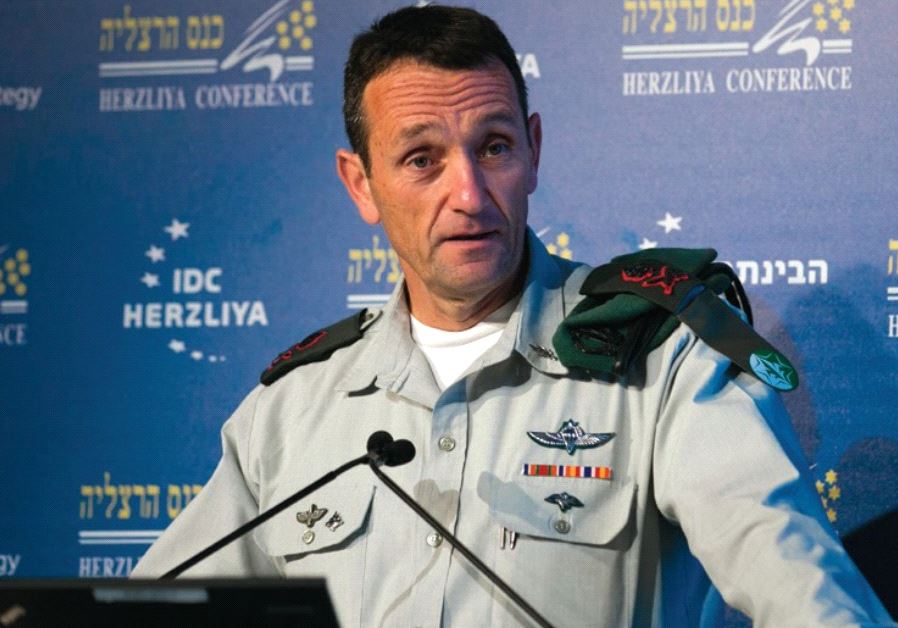IDF Southern Command chief: No calm with Gaza in next decade

HERTZI HALEVI. (photo credit: HAGAI FRID)
There will be no long-term quiet on Israel’s border with Gaza in the near future, the head of the Southern Command, Maj.-Gen. Hertzi Halevi, said during his first interview since assuming the position in June.
While Israel knows how to deal with all the threats along the border with Gaza, “Hamas will try us from time to time, and in my opinion, I do not think we will witness complete calm during the next decade in the Gaza Strip,” Halevi told Amnon Sofer and Mandy Rizel on 101.5 FM Radio Darom.
Asked about the possibility of a military operation in the Gaza Strip to reoccupy the coastal enclave, Halevi said he was skeptical about how that would improve Israel’s security. However, he said, Israel came close to a military operation against Hamas this summer.
“We came closer to it than any other time,” he said. “I think that on the other hand, the way we used our capabilities and power to damage their infrastructure has had an effect. I think the other side understood that it was not right to go any further.”
According to Halevi, the biggest threat to Israel is the “entry of an enemy force, under the ground or the sea or in any other way, without us being able to prevent it – where civilians meet terrorists from Hamas or other organizations.”
To address that threat, the IDF has placed a great importance on finishing the construction of a 65-km. long underground barrier along the border with the Strip, which is expected to be completed by late 2019.
The IDF is also working to destroy all of the terrorist group’s cross-border attack tunnels by using an advanced technological system that relies on a variety of sensors. Since October 2017, the IDF has destroyed 15 such tunnels.
JPOST VIDEOS THAT MIGHT INTEREST YOU:
Israel is also building an underwater barrier off the coast of the northern Gaza Strip in order to stave off Hamas infiltration by sea. The 50-meter wide, six-meter high barrier is expected to be completed by the end of the year and will stretch 200 meters from the community of Zikim into the Mediterranean.
Halevi placed rockets as second on the list of threats, with incendiary aerial devices third.
However, he expressed his support for building a seaport in Gaza, saying it could lower the hostility of Gazans toward Israel if the seaport were to be used as a passage of goods for civilians and not as a tool to bolster Hamas.
“I’m in favor of doing everything possible to improve the condition of Gaza’s residents, as long as Hamas is not empowered and the security of Israel’s citizens remains at least as good as it is today.”
Israel, along with Egypt, has imposed a blockade on the coastal enclave since Hamas seized control of the Gaza Strip from the Palestinian Authority in a bloody coup in 2007.
Gazans have held weekly demonstrations along the border fence every Friday since March 30, as part of what organizers have called the “Great March of Return,” and have said the protests will continue until the blockade is lifted.
On Monday, the IDF fired warning shots toward hundreds of Palestinians who were demonstrating on the beach in the northern Gaza Strip. Some of the demonstrators attempted to sail toward Israel on boats from which they tried to send burning tires ashore in Israel.
Israel’s military said troops fired warning shots in the air and toward the vicinity of the boats, forcing them to retreat. Troops also used riot dispersal methods against the protesters after they began burning tires and throwing stones, and at least one explosive charge at IDF soldiers.
According to Gaza’s Health Ministry, at least 49 Palestinians were wounded by the gunfire, including a cameraman who was wearing a press vest and was shot in the leg.
On Sunday, a Palestinian was killed by IDF fire after he repeatedly tried to sabotage the border fence near the Jabalya refugee camp in the northern Gaza Strip.
The IDF said 32-year-old Ataf Saleh from Jabalya – the largest of the eight refugee camps in the Gaza Strip – was spotted approaching the fence. He was evacuated to receive medical attention before succumbing to his wounds.
Join Jerusalem Post Premium Plus now for just $5 and upgrade your experience with an ads-free website and exclusive content. Click here>>






Comments are closed.